How will budget impact on local council services?
- Published
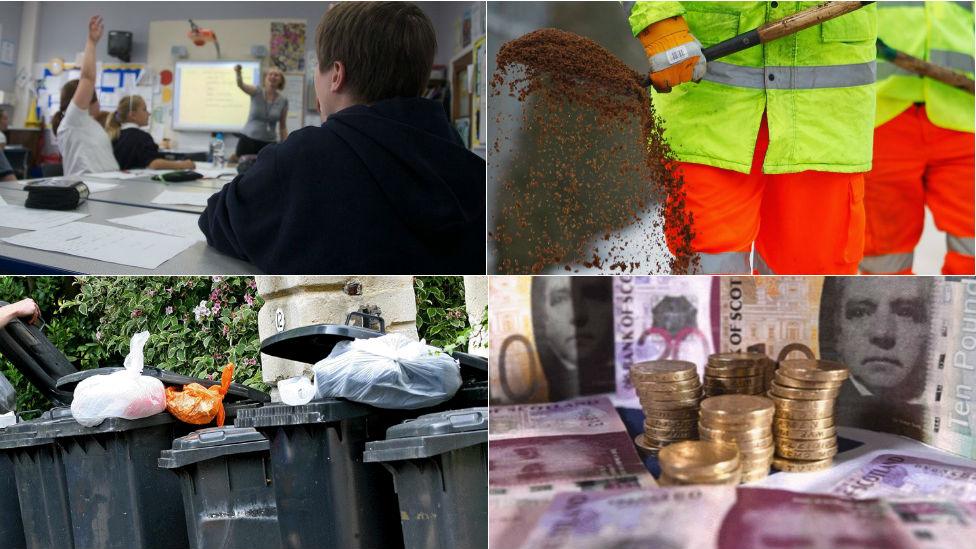
The Scottish government is due to announce its budget on Thursday, and along with that will come more details of the funding settlement for local councils. But what will it mean for local services?

What's the link between the Scottish government's budget and council budgets?
Councils are heavily dependent on the Scottish government for their money. The single biggest source of cash they get is government money.
A complex formula decides exactly how the cash is distributed between different councils - this takes account of several factors including the demographics of the area.
Business rates are, essentially, set at the same level across Scotland no longer going into a national pot to get distributed back to councils. But the amount raised in business rates is one of the factors which determine how much councils get from the government. Councils have the power to cut business rates to try to stimulate economic growth but cannot put them up above the national level.
The only significant power over money councils have is the council tax. Charges for services, bus lane fines and the like, make up a small proportion of overall budgets.
Councils can predict how much they may get from the government next year. Some say they are worried. But, at present, they simply do not know what they will get.

Will every council be putting up the council tax?

The national council tax freeze, which has seen the council tax remain at 2007 levels across Scotland, comes to an end next year.
Councils will have the power to increase the council tax by up to 3%.
However, we cannot assume all 32 councils will choose to use this power - some may go for a smaller increase or may even opt to extend the freeze locally for another year.
Administrations are likely to confirm their intentions once they hear how much the government intends to give them.
Most councils will meet to agree their budgets - and any rise to the council tax - in January and February.
Some councils have got into the business of making their biggest - and most controversial - decisions over the longer term so may not come out with significant new proposals for short-term cuts after the Scottish budget, even if they are unhappy with the deal on offer.
If any council chooses to put up the council tax by less than 3%, it would involve a political calculation. On the one hand, they would hardly be able to complain about the amount they receive from the government and might find it harder to justify unpopular decisions - on the other hand, they may be worried about how voters will respond to rising bills ahead of next May's council elections.

What about changes to the bands?
People who live in the most expensive homes will definitely see their council tax rise next year.
This is because the government is changing the relationship between the council tax bands across Scotland. Councils set the band D council tax - the bills for all other are a fixed proportion of this.
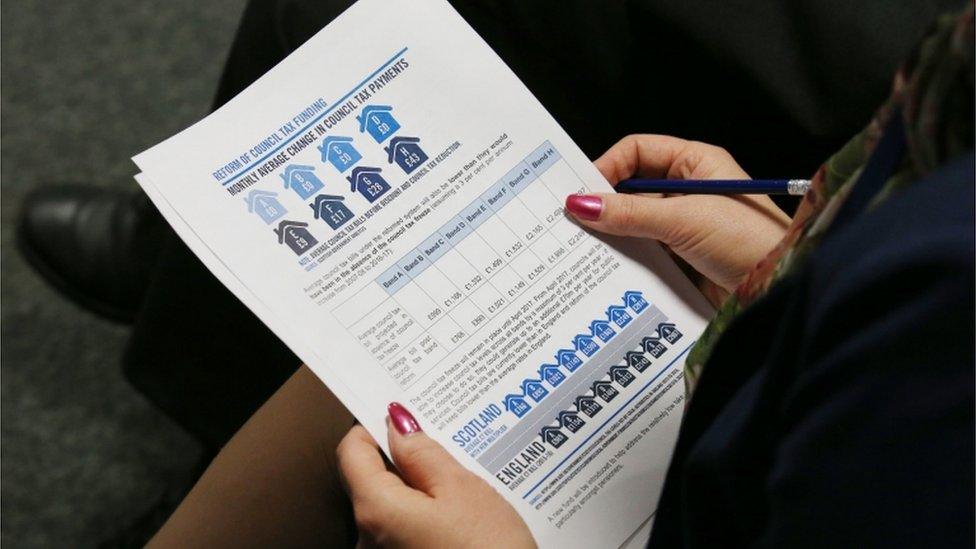
Government proposals will see council tax rise for properties in bands E, F, G and H
But the money from these changes will not simply go into council kitties - it will raise £100m which will be given to headteachers to spend on schemes to raise attainment in schools.
The money will effectively go into a national pot which will be distributed back to heads.
Some council areas will get significantly more or less from the pot than the amount raised locally.
Critics contend these changes could undermine the relationship between the council tax and local services.

Have councils done enough to become more efficient through the years of austerity?
One very interesting question is whether the current system of local government is really fit for purpose. It was designed before devolution by a government which did not want to see a Scottish Parliament created.
Is there now unnecessary duplication between many of Scotland's 32 local authorities? Could deals to share services between neighbouring authorities lead to back office savings and reduce the need for cuts the public would actually notice?
There are far fewer examples of shared services than some had predicted a few years ago.
A scheme which would have led to a number of councils in the west of Scotland pooling some services failed to get off the ground.
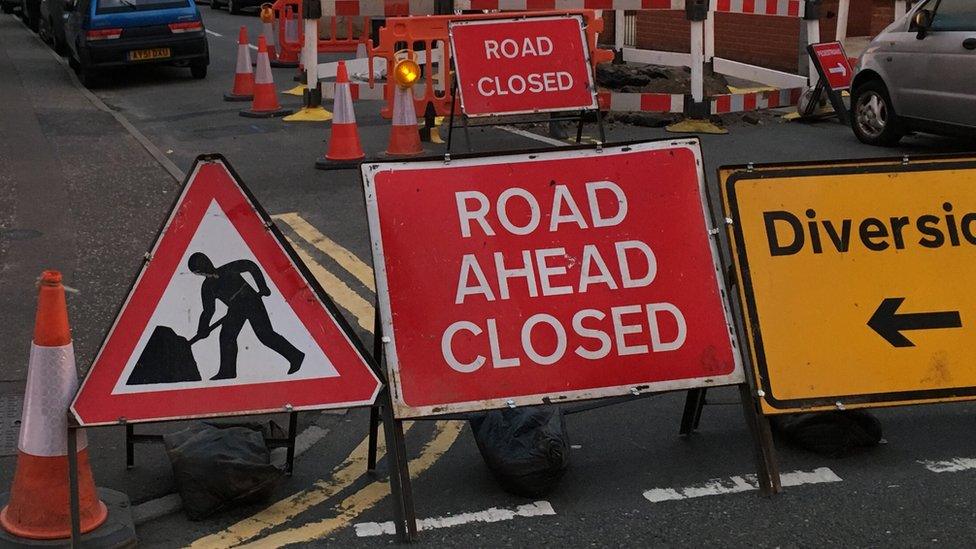
An attempt by neighbouring Stirling and Clackmannanshire councils to share their education and social work departments came to an end.
However, two councils in Ayrshire share their roads departments.
One problem is that structural changes often cost more upfront and the savings are delivered over time. Another is that councils may fear that the centralisation of back office services could lead to the loss of good jobs in their own area - a particular concern in areas where the council is a major employer.
It has been suggested that the Scottish government may expect to see far more progress in this direction after the council elections.

How much do people really care about what happens to councils?
This is the $64,000 question.
As a rule of thumb, the better off someone is the less likely they are to personally use a council service. The relationship is different - it is about a concern for a service designed for the whole community: road maintenance, bin collections, street lights, libraries, planning departments and so on.
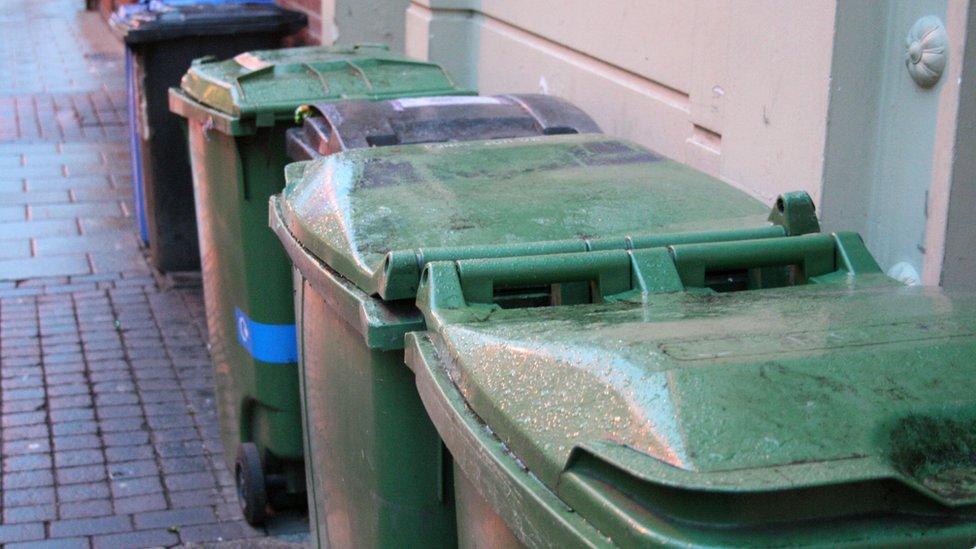
The one council service which directly touches the lives of many people who are affluent is education. In most of Scotland, it is exceptional to send a child to a school which is not run by the council. Potholes in the road are another source of regular middle class angst.
Sometimes questions over cuts and rows over changes to services become intertwined. For instance, where councils have changed bin collection arrangements they have sometimes highlighted both the need to save money and the need to encourage recycling and reduce waste.
It is not uncommon to hear people claim that they've had no interest in their council since they bought their council house.
Certainly local government played a far greater role in the lives of many people when a larger number of people - many of whom were fairly comfortably off - lived in council houses. Until the 1980s, many skilled workers and lower middle class people were council tenants. Of course, today far more people live in their own home while in some parts of the country there are no longer any council houses - housing associations (often working in partnership with councils) are responsible for social housing.
However, councils also play an important role providing help and protection for the vulnerable. Some of the concern over cuts in services has centred on how the most vulnerable could be affected.
Of course, because somebody does not personally use a service it does not follow that they do not care about it.
However, the turnout at many council elections in recent decades does suggest something of a disengagement with local democracy.
You can follow our live coverage of the Scottish budget on Thursday on the Holyrood Live page.
- Published12 December 2016
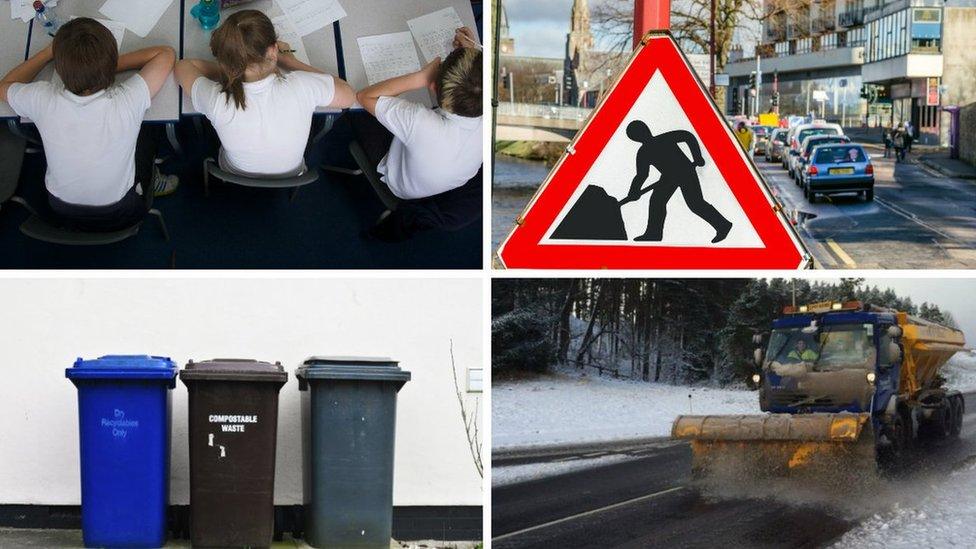
- Published5 December 2016
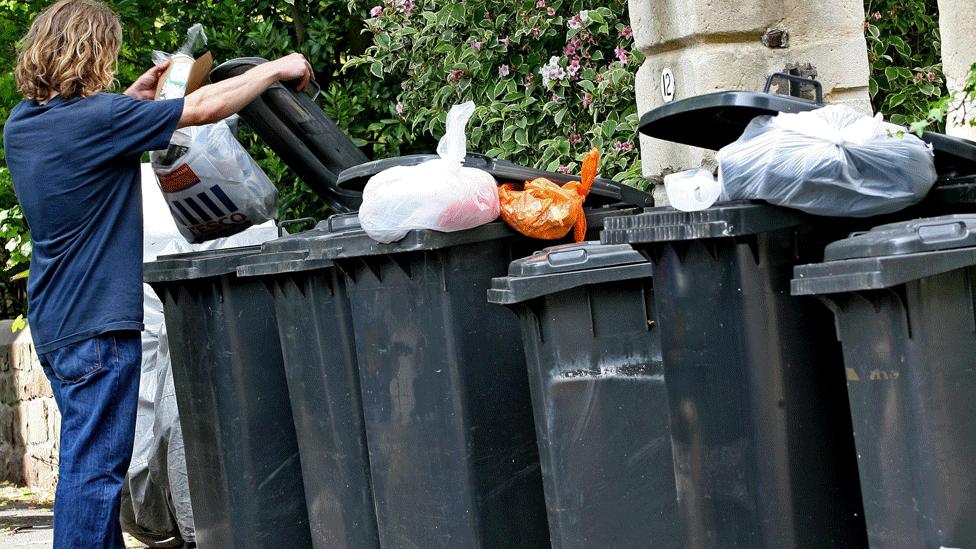
- Published29 November 2016

- Published16 November 2016
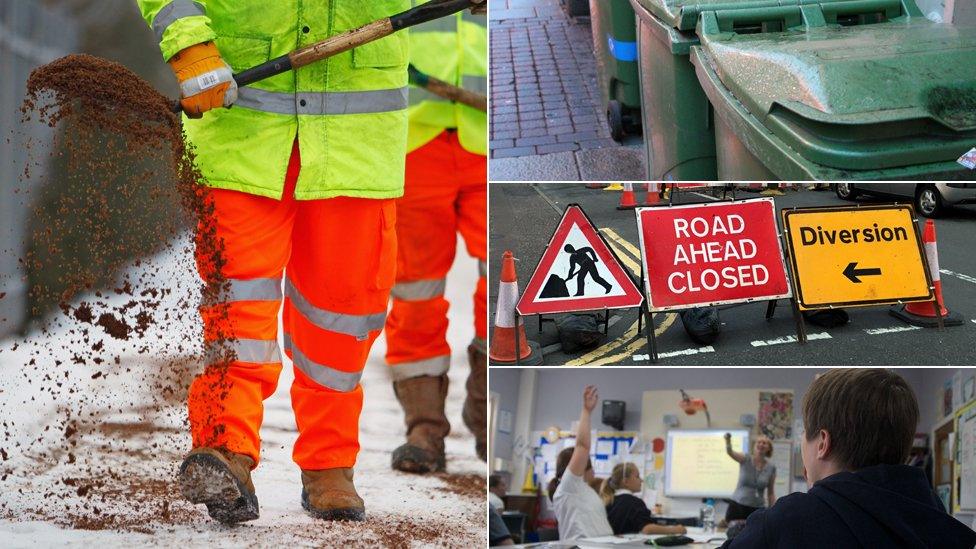
- Published30 September 2016
